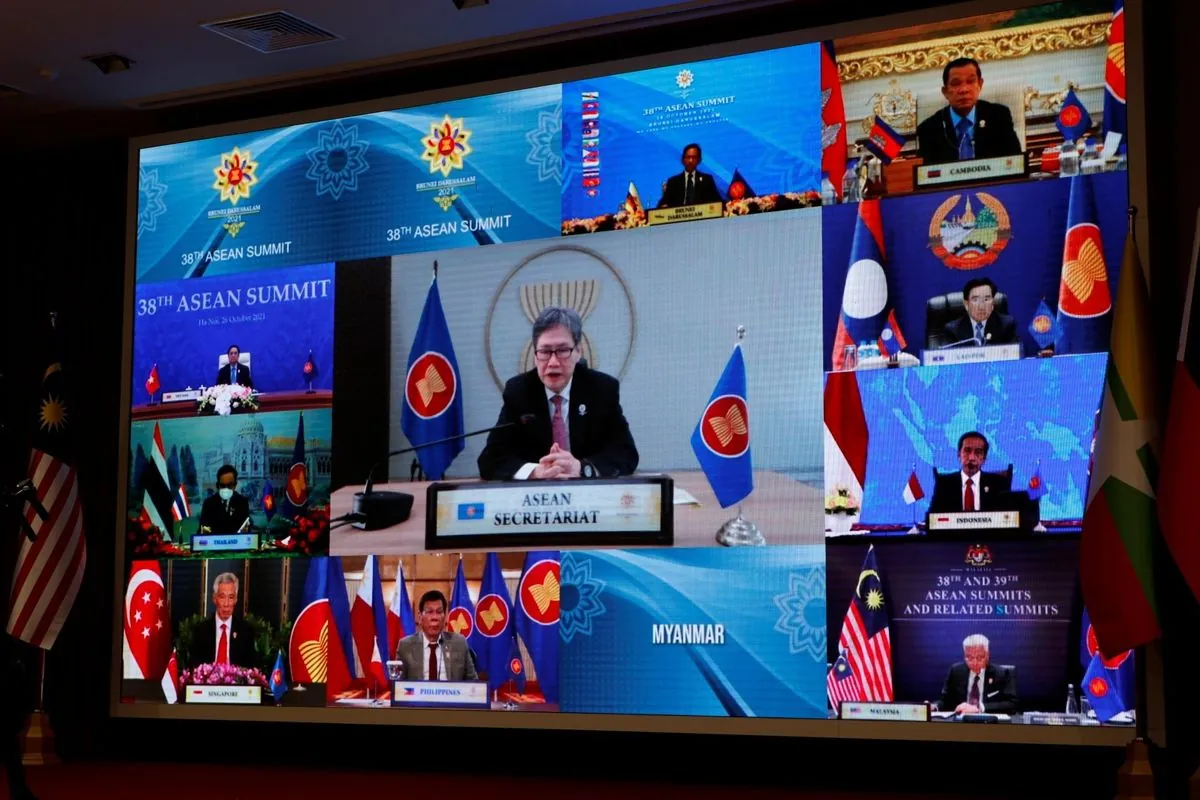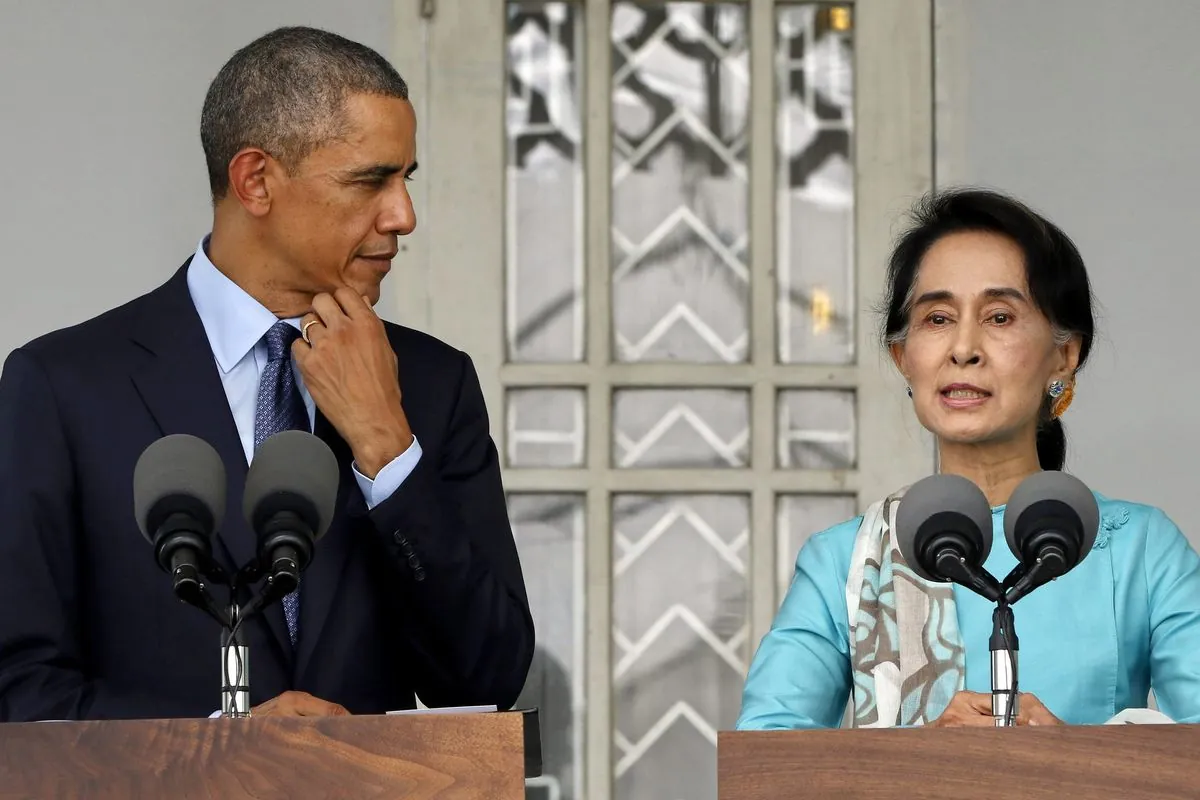US Pledges Support for Myanmar Opposition, China Backs Junta's Election Plan
US officials met with Myanmar's opposition, promising support for civilian rule. China offered technical aid for a junta-led census and election, highlighting conflicting approaches to Myanmar's crisis.

In a recent development concerning Myanmar's ongoing political crisis, U.S. officials conducted a virtual meeting with key figures from the country's opposition movement on August 11, 2024. This engagement comes amid conflicting international approaches to addressing the situation in the Southeast Asian nation, which has been in turmoil since a military coup in 2021.
The U.S. State Department reported that State Department Counselor Tom Sullivan and USAID Assistant Administrator Michael Schiffer participated in discussions with prominent members of Myanmar's pro-democracy groups. These included representatives from the National Unity Government, the National Unity Consultative Council, and resistance organizations such as the Karen National Union, Karenni National Progressive Party, and the Chin National Front.
During the meeting, U.S. officials committed to expanding direct support for pro-democracy actors in Myanmar. The aim is to enhance their cohesion and improve their ability to provide essential public services and humanitarian aid. Both parties emphasized the importance of maintaining pressure on the military regime to alter its course.

The U.S. approach contrasts with China's recent actions. On August 15, 2024, Myanmar's state media reported that China had promised technical assistance for conducting a census, followed by an election. This move signals Beijing's apparent backing of the junta, which is facing armed rebellion and losing ground.
"The situation in Myanmar is worrying. Neighboring countries should promote cooperation with Myanmar to help create economic and social conditions that prevent conflict."
Wang Yi also expressed China's support for a democratic transition in Myanmar and endorsed a regional plan to resolve the ongoing crisis.
It's worth noting that Myanmar, formerly known as Burma, has a complex political history. The country gained independence from British rule in 1948 and has been under military control for most of its independent history. The current crisis began when the military ousted an elected civilian government in 2021, abruptly halting the nation's tentative steps towards democracy.
The international community, including the United Nations and the Association of Southeast Asian Nations (ASEAN), has been actively involved in seeking a resolution to the crisis. Both the U.S. and opposition groups have pledged to collaborate with these international entities to bring an end to the turmoil.
Myanmar's rich cultural diversity and natural resources contrast sharply with its political instability. The country is home to various ethnic groups, including the Karen and Chin people, and boasts significant reserves of oil, gas, and precious stones. However, the ongoing conflict has severely impacted its economy, which was already struggling due to the COVID-19 pandemic.
As the situation continues to evolve, the international community remains divided on the best approach to support Myanmar's transition to democracy. The contrasting strategies of the U.S. and China highlight the complex geopolitical dynamics at play in the region.


































